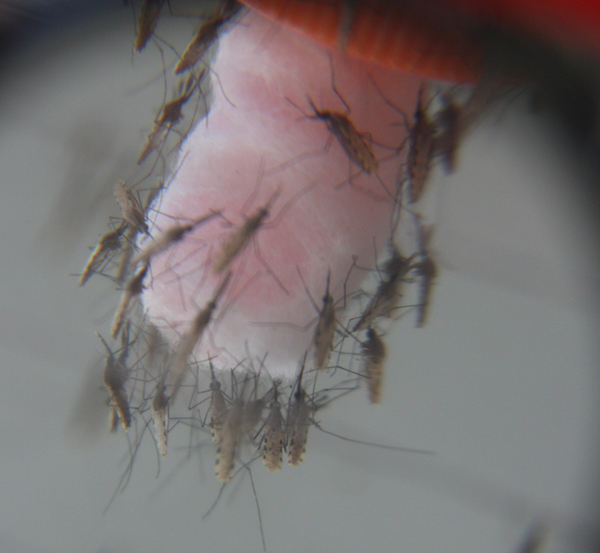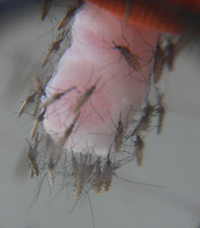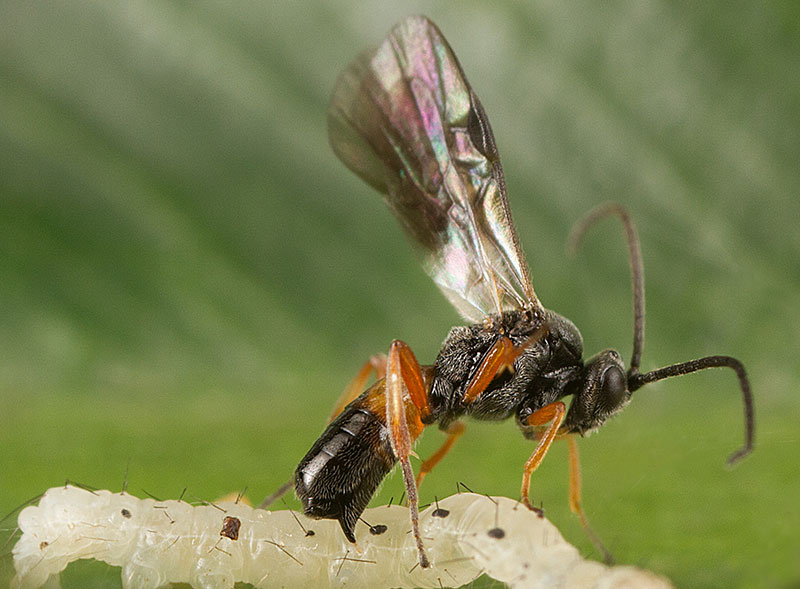This year’s unseasonably cool spring has left middle and north Georgia virtually mosquito free so far. But with the return of warmer nights that old familiar buzz won’t be far behind.
When mosquitoes do finally make their comeback, there should be plenty of them, said Elmer Gray, an entomology research coordinator with University of Georgia Cooperative Extension. Recent heavy rains have resulted in plenty of good habitat for mosquito larvae and may result in larger populations across Georgia.
“Anything that can hold water is holding water and will be holding water for the foreseeable future,” he said. “We’re above average for rainfall, and there is plenty of habitat for the nuisance mosquitoes. A lot of the rivers flooded, so the river bottoms have a lot of water in them.”
Gray says any containers outside your home that’s holding water can be a habitat for mosquitoes.”
So far, cool nighttime temperatures have slowed the development of the mosquito larvae in all those containers and river bottoms. As nighttime temperatures start to warm, however, they should quickly mature into the buzzing, biting bugs that vex spectators at Little League baseball games and backyard barbecuers.
“We’re right here on the front door of it because the nighttime temperatures are about to get a lot warmer,” Gray said.
The good news is that despite the impending increased mosquito population, Gray believes Georgia and the rest of the nation will not see the record-breaking number of West Nile Virus cases the country saw last year.
Nation-wide drought in 2012 brought more of the birds that carry West Nile Virus in contact with the mosquitoes that transmit the flu-like illness to humans because there were fewer watering holes. The drought left plenty of near-empty, swampy storm drains that provided plenty of breeding habitat for the Southern House Mosquito — the species of mosquito most often linked to West Nile.
That combined with a warm spring that gave mosquitoes a head start resulted in a long, dangerous and precedent-setting mosquito season. For the first time, all 48 contiguous states reported at least one case of the virus in 2012. In total, doctors reported seeing more than 5,300 cases of West Nile virus last summer and 243 of those patients died from the disease.
“This year is the complete opposite,” Gray said. “It’s been a very cold spring over most of the country, and there has been little West Nile activity as of yet, which is a good thing.”
Flood waters and full storm drains have helped wash many Southern House Mosquito larvae out of their breeding ground. This means their populations should be much smaller — possibly reducing the number of West Nile cases this year.
However, nuisance mosquito species — one’s that do not carry disease — will be out in full force. While they’re not as dangerous, they are annoying.
“Containers that hold water are perfect breeding habitats for nuisance mosquitoes like the Asian Tiger mosquito,” Gray said. “This is a daytime biting mosquito, the one that bothers us when you get home in the afternoon and are trying to enjoy a beverage and a barbecue.”
Eliminating habitat, where possible, is the key to reducing populations and defending your summer afternoons.
“You need to be diligent about getting outside and dumping all of those containers out because that’s the biggest source of habitat around our homes,” he said. “Here in Athens our biggest mosquito problems are the ones we breed ourselves.”
Larvicidal briquettes, available at most home improvement stores, will kill mosquito larvae in retention ponds, fountains and other water features that homeowners can’t easily empty.
Other ways of fighting the buzzing swarms include making sure window screens are in place and in good repair and stocking up on EPA-approved insect repellent. Gray recommends products containing DEET, the only EPA-approved repellent safe enough for toddlers and babies as young as two months of age. Parents should still read each product’s instructions before applying it to their children.
Parents should apply the spray to their hands and then rub it on their children’s arms and legs. Small children have a habit of sticking their hands in their mouths, and if they apply themselves there’s a good chance they’ll ingest some of it,” Gray said.
For more information about mosquito control, visit the UGA Extension publication website at www.caes.uga.edu/publications. and search for stinging and biting pests.









